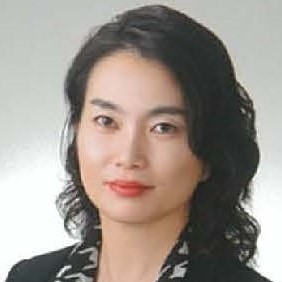[Report]
Against the backdrop of the formulation of the Bioeconomy Strategy in 2019, which states the goal of realizing a bioeconomy society by 2030, this workshop is aimed at addressing a wide variety of themes related to bioeconomy society and strengthening participants’ knowledge through in-depth discussions. As in the previous workshop, information/opinions discussed in diverse international frameworks concerning genomic sequence data were shared with participants from various fields to elucidate the overall picture.
Below is the summary of each speaker’s report.
◆Current situation of bioeconomy, challenges it faces, the purpose of the workshop, and the overall ABS situation concerning digital sequence information (DSI) in various forums (including developments in the WHO)
Makiko Matsuo, Project Associate Professor, Institute for Future Initiatives, Graduate School of Public Policy, The University of Tokyo
As reported in the last workshop, the Convention on Biological Diversity (CBD) ensures access to genetic resources and the fair and equitable sharing of benefits arising from their utilization (ABS: Access and Benefit-Sharing). Meanwhile, whether genetic resources for benefit-sharing include genetic information as well as substances and how a concrete benefit-sharing mechanism should be established are under discussion in various international forums, which include not only the CBD itself but also the International Treaty on Plant Genetic Resources for Food and Agriculture (ITPGR), the BBNJ Agreement (The Agreement under the United Nations Convention on the Law of the Sea on the Conservation and Sustainable Use of Marine Biological Diversity of Areas Beyond National Jurisdiction), and the WHO’s so-called pandemic treaty. In view of the dissemination of various discussions from different forums, the possibility of forum shopping, and the importance of maintaining consistency between forums, this discussion, which may have significant influences on research and development and corporate activities, needs involvement of participants from various sectors.
In WHO, concerning the international framework for sharing pathogens and their genetic sequence data (GSD), the Pandemic Influenza Preparedness Framework (PIPF) has been established and the discussions have been held in light of the relationship between the PIPF and the Nagoya Protocol under the CBD. However, GSD has not been included in the resources for benefit-sharing. Then, after the COVID-19 pandemic, need for an international framework for promptly sharing pathogens and GSD was brought up again, and it has become a major point in the discussion of the pandemic treaty. Specifically, a proposal has been made to include the creation of the Pathogen Access and Benefit Sharing System (PABS System) in the treaty, which is currently being drafted. This pandemic treaty is under intense discussions for submission to the WHO general assembly (WHA77) scheduled in May 2024.
◆Summary of negotiation results of DSI and ABS at CBD/COP 15
Haruka Shiota, Assistant Director, Environment and Biomass Policy Division, Global Environmental Policy Office, Minister’s Secretariat, Ministry of Agriculture, Forestry and Fisheries
The CBD defines access to genetic resources and the fair and equitable sharing of benefits arising from their utilization as one of its objectives, and a decision was made in the COP 15 held in December 2022 that digital sequence information (DSI), which is a genetic resource, should be included in the resources for benefit-sharing and an open-ended working group should be set up to discuss its concrete mechanism for the COP 16 in 2024. At the same time, matters such as triggering points and linkage to the geographical origin of DSI for benefit-sharing, sharing of non-monetary benefits, and the relationship with the Nagoya Protocol, were noted as issues for further considerations. Additionally, the definition and scope of DSI, legal grounds for benefit-sharing, and the possibility of a hybrid approach through bilateral and multilateral mechanisms can be major points in future negotiations.
Meanwhile, the International Treaty on Plant Genetic Resources for Food and Agriculture (ITPGRFA), which sets common ABS rules for plant genetic resources for food and agriculture as exceptional treatment in the CBD, is also having talks about matters such as the inclusion of DSI in its multilateral benefit-sharing mechanism. To conclude negotiations before the Session of the Governing Body to be held in 2025 (GB11), various discussions are held on issues such as the need for clarifying the definition of DSI and a concrete benefit-sharing mechanism while close attention is paid to the development of discussions on DSI in the CBD.
◆DSI and ABS in BBNJ Agreement
Kentaro Nishimoto, Professor, Graduate School of Law, Tohoku University
The Agreement under the United Nations Convention on the Law of the Sea on the Conservation and Sustainable Use of Marine Biological Diversity of Areas Beyond National Jurisdiction (BBNJ Agreement) was created to complement the United Nations Convention on the Law of the Sea, which lacks explicit provision for the conservation of biological diversity, and the Convention on Biological Diversity, which does not basically regulate matters related to the open sea and the deep seabed. There was a division of opinion between advanced and developing countries as to whether marine genetic resources (MGRs) can be included in the resources for benefit-sharing as the common property of mankind, but eventually, MGRs were included in the resources for benefit-sharing through concessions by advanced countries that gave a higher priority to the conservation of biological diversity through the conclusion of the treaty.
The CBD’s decision at COP 15 gave a significant influence on the decision by the BBNJ to include DSI in the resources for benefit-sharing. Since the BBNJ has no definition of DSI, its decision may have an effect on the discussions in the CBD, but at the same time, discussion on a benefit-sharing mechanism in the BBNJ may influence the CBD. Concerning a concrete mechanism for monetary benefit-sharing, it was decided that benefits must be shared through a financial mechanism and a provisional system was adopted in which advanced countries make a contribution of equivalent to 50% of the treaty budget to a special fund. A permanent system will be decided at a conference of the parties, and the focal point will be whether the amount of benefit generated by actual activities related to MGRs is likely to exceed the monetary benefit-sharing under the provisional system. In regard to mineral resources in the continental shelf beyond 200 nautical miles, the United Nations Convention on the Law of the Sea already has provisions for benefit-sharing, which may have an influence on discussion in the BBNJ goring forward. While each country will sign and ratify the Agreement, further consideration will be required on matters including ratification by Japan and the clarification of the relationship with domestic law.
Bioeconomy Workshop (Invitation Only / Reservation Required)
The 18th Bioeconomy Workshop: Handling of Genomic Sequence Data and ABS (Part 2)
● Date and time: Wednesday, August 23, 1:00 p.m. – 3:30 p.m.
● Venue: Online by Zoom
● Organizer: Education and Research Unit of Science, Technology and Innovation Governance (STIG), The University of Tokyo (Representative: Hideaki Shiroyama) https://stig.pp.u-tokyo.ac.jp/
● Co-organizer: “Bio-Digital Transformation (Bio DX) Industry-Academia Co-Creation Center” (Project Leader: Takashi Yamamoto); Grant-in-Aid for Scientific Research (A) “Social Study on selection and deliberation regarding the application of advanced technologies such as genome editing to the field of food, agriculture, and environment” (Principal investigator: Masashi Tachikawa); Health and Labour Sciences Research Grant “Research on strategic/effective intervention by Japan and the rest of the world regarding the enhancement of preparedness for, and response to, the global health crisis” (Principal investigator: Kayo Takuma); and Grant-in-Aid for Scientific Research (B) “Rebuilding global health governance: Response to COVID-19” (Principal investigator: Hideaki Shiroyama)
● Timetable:
– Current situation of bioeconomy, challenges it faces, the purpose of the workshop, and the overall ABS situation concerning digital sequence information in various forums (including developments in the WHO)
Makiko Matsuo, Project Associate Professor, Institute for Future Initiatives, Graduate School of Public Policy, the University of Tokyo (15–20 min)
– Summary of negotiation results of DSI and ABS at CBD/COP 15
Haruka Shiota, Assistant Director, Environment and Biomass Policy Division, Global Environmental Affairs Office, Minister’s Secretariat, Ministry of Agriculture, Forestry and Fisheries (15 min)
– DSI and ABS in BBNJ Agreement
Kentaro Nishimoto, Professor, Graduate School of Law, Tohoku University (40 min) + Q&As (10 min)
Remaining time: discussion
Number of participants: 72
Speaker’s bio
 |
Haruka Shiota, Assistant, Director, Environment and Biomass Policy Division, Global Environmental Affairs Office, Minister’s Secretariat, Ministry of Agriculture, Forestry and Fisheries Current position since April 1, 2023. Mr. Shiota joined the Ministry of Agriculture, Forestry and Fisheries of Japan in 2013, where he mostly engaged in coordination work within the ministry. In 2021, he was temporarily transferred to the Cabinet Secretariat and worked on the distribution of special cash payment to low-income households for about one and a half years. In the current position, he mainly works on the Access and Benefit Sharing (ABS) system under the Convention on Biological Diversity (CBD) as well as the International Treaty on Plant Genetic Resources for Food and Agriculture (ITPGRFA). He earned his master’s degree from the Graduate School of Bioagricultural Sciences, Nagoya University (plant pathology). |
 |
Kentaro Nishimoto, Professor, Graduate School of Law, Tohoku University Current position since August 2019. Mr. Nishimoto has also served as professor at the Arctic Environment Research Center, National Institute of Polar Research (cross appointment) since August 2010. His specialty is international and maritime laws. He engages in research primarily on the conservation and sustainable use of marine resources, protection and conservation of marine environment, and settlement of maritime conflicts. He serves as an advisor in the Japanese delegation to the preparatory committee/intergovernmental meetings on the conservation and sustainable use of marine biological diversity of areas beyond national jurisdiction (BBNJ). Bio and research results: https://researchmap.jp/7000004436 |
 |
Makiko Matsuo, Project Associate Professor, Graduate School of Public Policy, Institute for Future Initiatives, UTokyo Current position since April 1, 2020. Currently, she is engaged in research on governance and ELSI at the intersection of science, technology, and society (food safety, bioeconomy, international health, etc.) from various perspectives, including international politics, public policy, and risk studies, in the Education and Research Unit for Science for Policy (Science, Technology, and Innovation Governance Program: STIG). Bio & Research results: https://researchmap.jp/makiko_matsuo |
[The objective of the bioeconomy seminar series] Since a bioeconomic report was created by the OECD in 2009, many countries in Europe and the United States have developed policy documents highlighting the bioeconomy and the momentum for the bioeconomy has been growing. It has also been declared in the Bioeconomic Strategy 2019 that Japan will create the world’s leading bioeconomic society by 2030 and update and promote its bioeconomic strategy every year. However, the bioeconomy concept is extremely broad and its specific overview is not sufficiently certain. This seminar therefore aims to invite experts of domestic/international trends and share information about the current status of bioeconomic developments with the participants. Through this interaction, we will consider the significance, strengths, and challenges of bioeconomies.